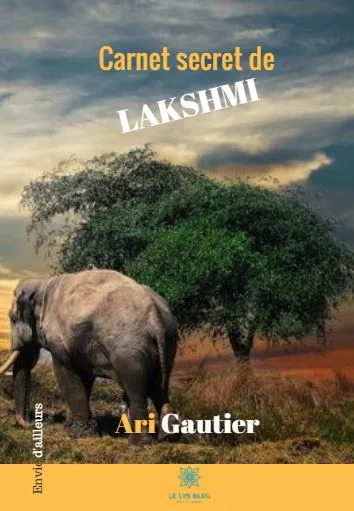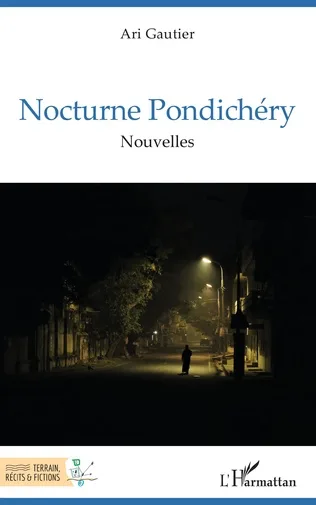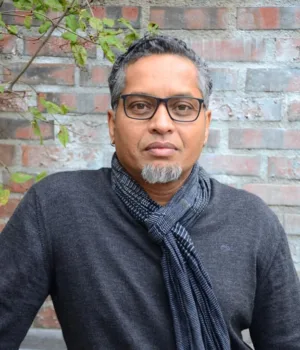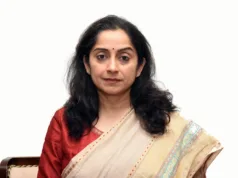“Urging and helping Indian writers to write our own history is my way of putting Pondichery on the world literary map,” stated Ari Gautier, a French writer of Indian origin.
Looking ahead to the Goa Arts and Literature Festival 2024 from February 15-17 at ICG Dona Paula, where Ari Gautier will be present; www.livenewsgoa.com provides an insight into the work and impact of the pioneering Franco-Indian novelist.
Q & A
LNG. You have an interesting Tamil-Madagascan ancestry and also spent your childhood in Pondicherry. Which aspect of this erstwhile French colony is closest to your heart and why?
AG. Both countries are dear to me. One is where I was born, the other where I grew up. It’s a difficult choice. It’s like asking someone whether he loves the dead mother who gave birth to him, or the mother who raised him. I was only three months old when I arrived in Pondicherry. I have no memory of Madagascar. The word Antananarivo as my birthplace was the only link that connected me to this country that I didn’t know during my life in India. And there were only three families in Pondicherry who shared the same story. You couldn’t say there was an Indo-Malagasy diaspora where we lived to evoke a Malagasy memory. We were absorbed into a multicultural Pondicherry. In fact, more than cultural, Pondicherry is a Creole space where different origins rubbed shoulders. Military and administrative personnel from Pondicherry who left to work in the French colonial system returned home with their husbands and wives from the French colonies and the metropole. West Indians, Reunion Islanders, Madagascans, Mauritians, Africans, Algerians, Indochinese lived together with our Franco-India-Otherness identities. This mixture with this cultural richness built my life and fed my imagination to become a writer. But that didn’t mean that Madagascar had disappeared from my life. The island lurked in the back of my mind was waiting to emerge when the time was right. And this happened when I visited it 40 years later. The shock was terrible, because Madagascar’s history is so different from that of Pondicherry. Particularly the colonial history with its violent past and the misery that persists despite the natural wealth. The colonial legacy of these two countries, which are so dear to me, feeds my reflections as I tell their stories. So far I’ve only written about Pondicherry, but my next book will also be about Madagascar. As I often say: the twice-colonized soul is a time bomb…
LNG. Your novels, short stories and poems have been translated into multiple foreign languages and are studied in different universities of the world. Are you flattered by all this or just plain happy and why?
AG. I’m very flattered that my work, translated into several languages, is being studied around the world, because it proves that my books are not only good, but are also arousing curiosity in the academic world . We are just a handful of Pondicherry writers, and French-language literature in India is still a recent phenomenon. And among these writers, I’m the only one with an international reach. It’s a shame, because other voices besides mine need to be heard. But it’s also a fact that the subjects I deal with are an asset in getting academics interested in my work. While others deal with more contemporary subjects, my approach is historical. I’m the only novelist who writes historical fiction. For, until now, our history has been told by the French to legitimize and glorify colonization. There are hardly any novels from the indigenous perspective that question the colonial system and its history in Pondicherry. What’s more, my second novel, Le Thinnai, is the first to tell the story of indentured labourers in the Caribbean. The history of engagement is lost in the meanders of colonization. Very few Indian writers writing in English have tackled the subject. In French, this is totally non-existent. The fact that I place Pondicherry at the crossroads of global history, through the history of indentured labourers, slavery, material culture, culinary memory and trade, is of great interest to the academic world. I’m receiving more and more requests from scholars asking me to write for academic journals. My first novel Carnet Secret de Lakshmi translated into English published by Columbia University Press will be out in April. It’s the best proof that the Academia loves my work.

LNG. Your book of short stories is titled “Nocturne Pondichéry” and is based on life in your childhood town. What is the common thread running through all the stories?
AG. The night is the common thread that connects these stories. Because the real face of a city appears only at the fall of the night. Pondichery recently became a destination very taken has somehow lost its true nature ( evil or well). The state has become a commercial product or one touts only its good. Now, for the one who knows and loves Pondichery, this facade is only a masquerade. Behind the smiling mask hides a city with its flaws and its lot of violence that the inhabitants and the state want to hide to give a heavenly image of the city. My stories deal with the psycho-social aspect of inhabitants affected by colonization. Certain habits, reflexes and practices proper to Pondicherry can only be understood by a deep analysis of the social structure and a great knowledge of its history. As a writer and observer of human behaviours, the night feeds me generously of interesting stories unknown. The most beautiful compliment I received from some readers who tell me: I did not know that there was a life after 11 pm in Pondicherry. Yes, real life only wakes up at night. The English version of this book translated into English published by Hachette India will be out in June this year.

LNG. It is stated that you are keen to place Pondicherry on the world literary map. How do you propose to do this?
AG. Compared with French-language literature from Africa, the Maghreb, the Caribbean and the Mascarene Islands, French-language literature from India is non-existent. When I became aware of this anomaly, it seemed obvious to me to fill the void. It was time for French Indian literature to erase the selective amnesia of France.
It would be pointless to wait for others to do the work for us. We French-speaking Indians should take charge of our own literary destiny and tell our own story. Urging and helping Indian writers to write our own history is my way of putting Pondichery on the world literary map. I recently helped former judge David Annoussamy, a 93-year-old writer of historical and legal books, publish three of his latest works. I’m helping his daughter Yamouna David to publish her books too, and encouraging others to write. It’s hard work convincing others to write and publish them, because there’s a form of mistrust among the few who do. They think what’s in it for me. I have nothing to gain other than that our self-penned stories will be read around the world. And that, at last, a true Indian francophone literature will emerge from India.






